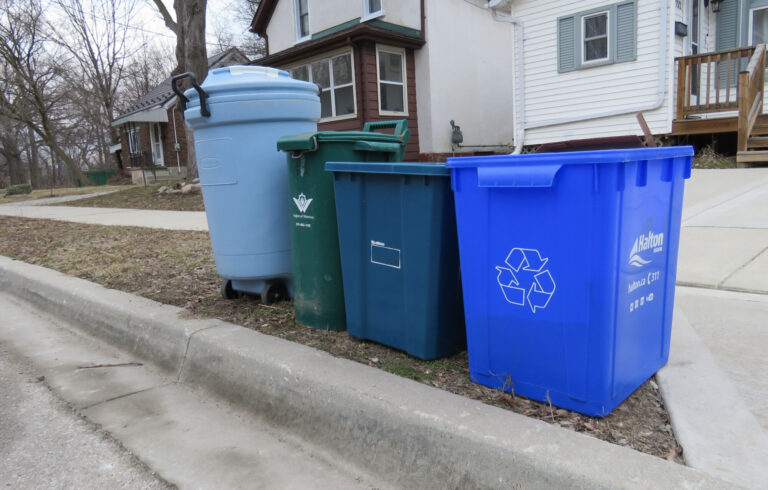On Mar. 2, 2024, the management of the region’s blue box recycling program was handed over to a new organization as part of a provincewide change in the recycling of cardboard, paper, plastics and other recyclable materials.
The change is part of the province’s move to an extended producer responsibility (EPR) model where companies bear the responsibility and costs of recycling their packaging instead of residents. The program will take effect over two years from July 2023 to 2025.
With the transition, Circular Materials, the national not-for-profit producer responsibility organization, will take over managing the blue box program for residents of Waterloo Region.
Dave Johnstone, Manager of Waste Collection and Diversion at Region of Waterloo, said that while it is a significant change for the region, residents will not notice any changes to their weekly blue box collection.
“Circular Materials is using the contractors we’re currently using. It’s the same service, but they’re taking over the program and the cost of operating it,” Johnstone said.
Curbside collection dates, what materials are accepted and how residents fill their blue boxes will stay the same. The only significant change is in reporting issues with collection or requesting new blue boxes. Collection issues will need to be reported to the appropriate contractor—Emterra Environmental for residents in the townships and Miller Waste Systems for residents of Kitchener, Cambridge and Waterloo.
The province announced the Blue Box Regulation in June 2021 to shift the recycling costs from consumers to the companies who import or produce packaging. Johnstone said the change is exciting because it gives the province power to push back on material producers to change how they package items.
“As much as I think we do a great job, we can only work within the boundaries of the Region of Waterloo. There might be packaging we didn’t particularly like for our recycling program, but there is not a lot we can do about it,” Johnstone said. “This change puts the onus on the producers, and it is the right thing to do because they have the ability to make changes.”
Under the current system, each municipal waste management organization sets their own standards for what can and cannot be placed in a blue box. The change to a province-wide program will mean standardization across the province to force producers to reduce unrecyclable packaging and help Ontarians know what items are recyclable.
“We don’t know what changes there will be. But hopefully, we’ll see consistency across the province, which is a benefit to all of us,” Johnstone said.
The Region of Waterloo has been a leader in recycling and other waste-reduction programs in Canada. The first curbside blue box collection program was launched as a neighbourhood pilot in Kitchener in 1981, with the program going citywide in 1983.
“I like to think that we were leading change. To me, this province-wide recycling system is an evolution,” Johnstone said.
He added that residents can easily find information on their blue box collection and what materials are accepted in the Waste Whiz application.
“The more we get people using Waste Whiz, the better off we’ll be as these changes progress. All the information, from blue box and green bin to trash and bulk items, can be found there,” he said.
For more information, visit the Region of Waterloo website.

